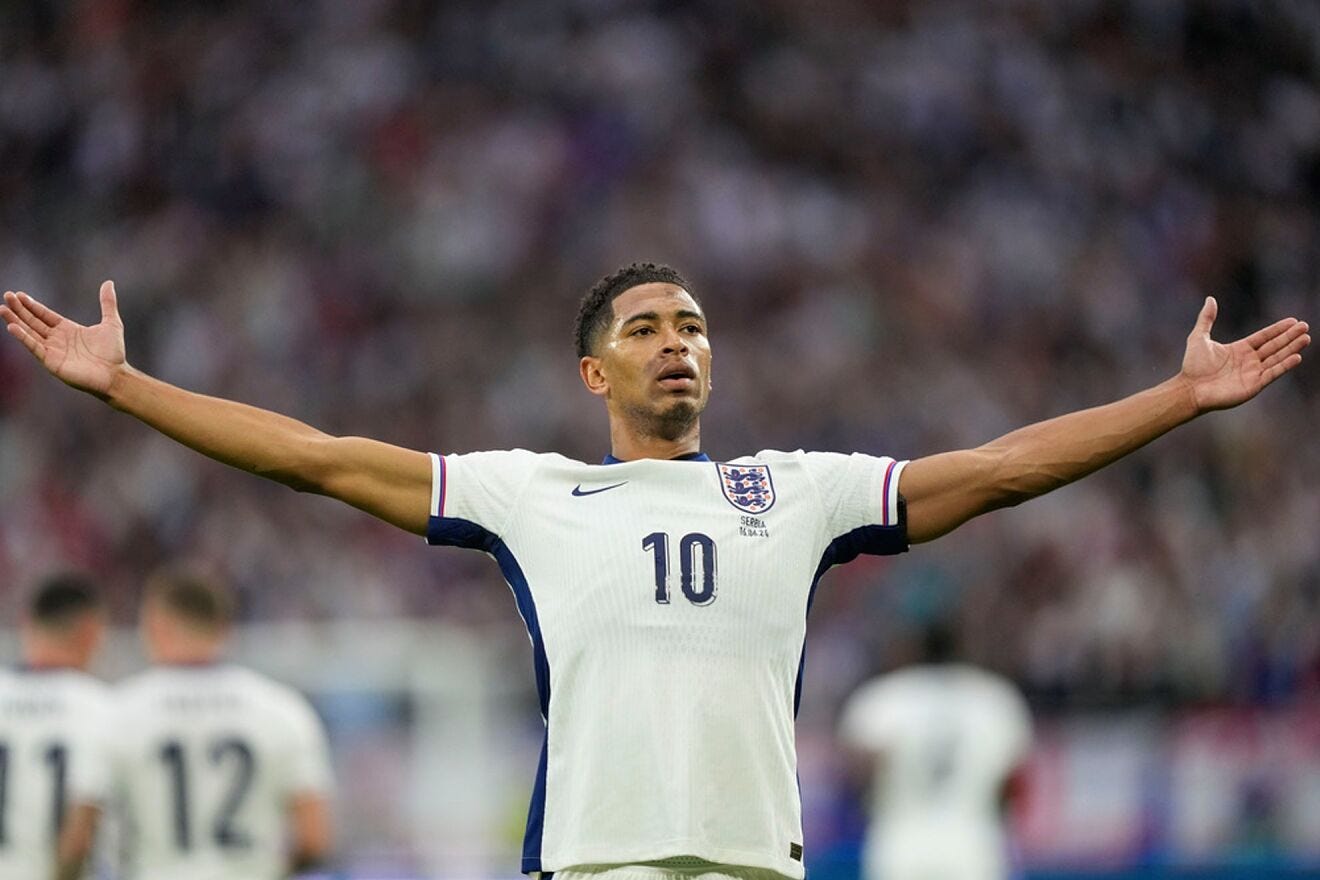‘It had to be him’: the meaning of Jude Bellingham’s labor at the 2024 Euros
A look back at the moment of the summer before the 2024-25 football season begins
The expressions that the Liverpudlians wore were familiar, if only because I’ve been to a funeral before. The English men’s football team was down 1-0 to Slovakia in stoppage time in the first knockout round of the 2024 European Championships and England’s fans at the Einstein Bier Haus looked as distressed by the im…




